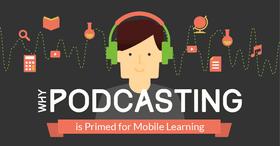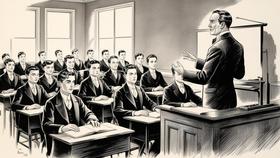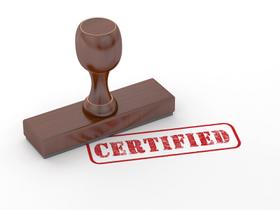One of the basic differences between private and public schools is the fact that most public school teachers belong to a union. Does that make a difference for public school teachers? Does having a unionized faculty benefit schools? How did unions get involved with public education? Are private school faculties unionized? Basically, the question is, should teachers be unionized or not? My answer to that question is "Yes" if you teach in a public school and "No" if you teach in a private school. Let me explain why.
In Public Schools: The Case for Protection and Leverage
Public schools are essentially controlled by the government at the local, state, and national levels. They also are funded by taxpayers at all those levels. So it makes sense for teachers to want and need some protection from and leverage with those three quarters. The most potent protection public school teachers have is their union. Teacher unions also furnish the leverage or negotiating strength necessary to engage administrations in frank discussions about matters like compensation, class size, accountability, etc.
Private schools are funded primarily by the tuition fees paid by their customers, i.e., the parents of their students. Endowments and fundraising make up the delta between what tuition raises and the actual expenses for the school year. Income and expenses must align. Each private school is an independent corporate entity controlled by school trustees, not governments. Each private school has its own particular mission and educational goals. Each school hires teachers who it feels are compatible with that mission and with those educational goals. Private schools negotiate contracts with individual teachers as opposed to having a teachers union negotiate a blanket contract.
Back to the public school teachers and why their unions are necessary. Public schools are funded to a great extent by local property taxes. So you would think that public schools would operate no differently than private schools. In other words, they would not spend more than they take in. But this is where it gets very complicated very quickly. A directive from the state to manage a program that has been put in place may have the highest and best motives. But if the state legislators do not fund the program fully, somebody has to take up the slack.
That somebody invariably is the local school district and the local government. Add to that regulations and requirements issued by the Federal government, and you begin to understand that somebody is constantly being caught between the proverbial rock and a hard place.
Unfortunately, public school teachers are nearly always at the end of the line. When the budgets are cut, and teachers are dismissed, students still must be taught. The only way to do that is to increase class sizes. Once you have class sizes in the 40-50 student range, serious teaching becomes problematic at best. Much of the class time is spent managing students and handling disciplinary matters. The public school teacher must cope with this situation as best she can. She is also held accountable for the results. Accountability is a major watchword in public education, as it has been for many decades.
Frankly, based on all I have read and learned about public school budgets over the years, I would want to be in a union myself if I taught in a public school. What protection would I have if the administrators decided to pay me less, reduce my benefits, or make me work more hours? Let me dispel the notion that teachers only work 8-hour days, have long vacations throughout the year, and then have the whole summer off. The hours I spent teaching were just a part of my work day. When I was teaching English, history, and Latin. I still had lesson preparation and marking to do. I learned to do my lesson preparation on the weekends. During the week, when I arrived home, I helped prepare supper for my children and supervised their homework. Finally, I had an hour or two to mark the compositions which I had assigned earlier that week. Just to be clear, English compositions need to be read, and thoughtful comments written on each paper. The same is true of any subject which has a lot of written work.
So, a resounding "Yes" if you teach in public school. You should be unionized.
This video purports to explain teachers unions.
In Private School: Structural Independence
Private schools, on the other hand, are organized as stand-alone business entities. Each has its own corporate governance, which is usually a board of trustees. The trustees generally are alumni of the school. They believe in the school's mission and purpose. The school has equipped them to be successful in life. As a result, they are returning the favor by helping make sure that the school remains on a sound footing, both financially and in many other ways.
Private school trustees have long recognized that a skilled, highly-qualified, experienced faculty is at the heart of their school's success. On the other hand, a private school's business model requires that it be able to move quickly to address issues such as a budget shortfall or the inevitable unsatisfactory teacher. Yes, private schools have unsatisfactory teachers too. But in most cases, the school will dismiss for cause or not renew a contract. There is no recourse except possibly in the legal system.
The other benefit for a private school teacher is that she actually gets to teach. She gets to teach all the time. She gets to teach small classes of students who want to learn. That is why they are attending a private school in the first place. Private school teachers are part of a community that values and respects them. They function with the school's full support and, most importantly, the parents' support. Remember: because parents pay substantial tuition fees to send their children to private schools, they have high expectations. They will insist on being involved in order to receive the best value for money.
This video discusses the question, "How powerful are teachers unions?"
So, a resounding "No" if you teach in a private school. You do not need to be unionized.
As I was researching this article, I could not find any private schools with unionized faculties. I found several charter schools where the teachers had voted to become members of the National Education Association or American Federation of Teachers, the two main teachers' unions. If you know of any private schools with unionized teachers, I would like to know about them. You can post on our Facebook Page.
Questions? Contact us on Facebook. @privateschoolreview





















